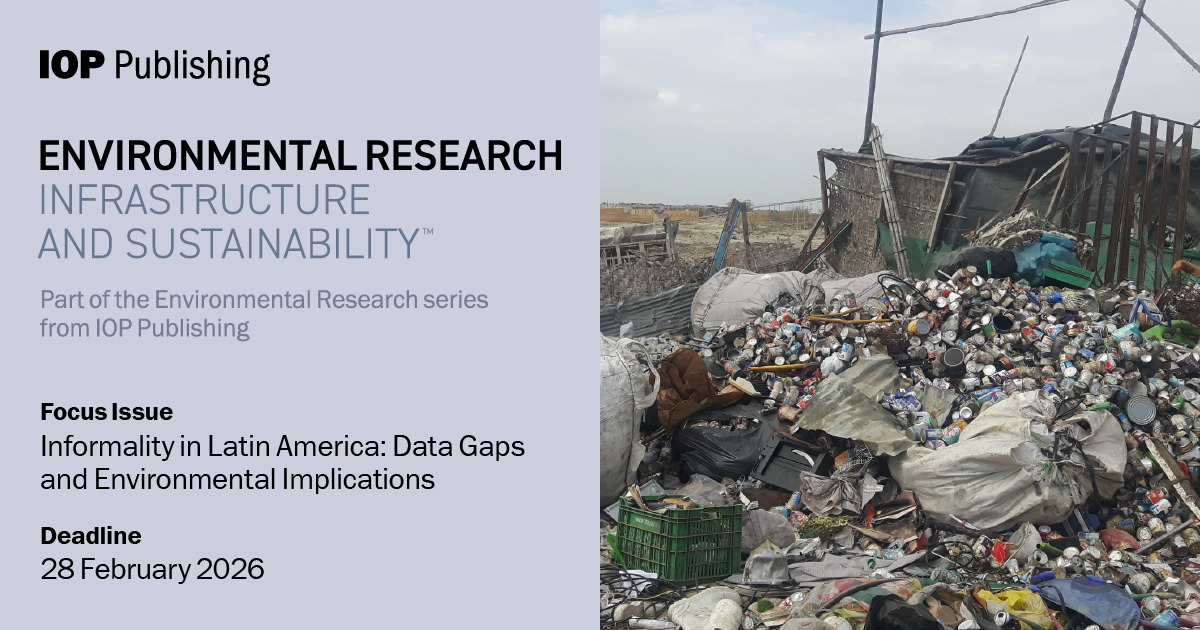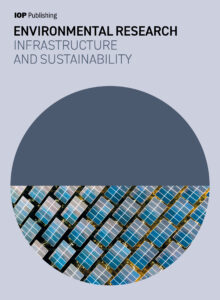ERIS特刊征稿|Focus on Informality in Latin America

特刊详情
客座编辑
- Ramzy Kahhat,秘鲁天主教大学
- Vanderley John,巴西圣保罗大学
- Bernhardus Van Hoof,哥伦比亚安第斯大学
主题范围
The informal sector plays an important role in the economic and socio-cultural structures of Latin America. The sector provides a significant employment opportunity and primary income for many families around the region. Their activities are diverse, including waste collection and recycling, extraction of raw materials, manufacturing of construction materials, agriculture, repair and maintenance, amongst others. Also, in some economic sectors, the informal actors are vital for the sector´s dynamism as are the key enablers of, for example, waste/resource flows within and between sectors.
Regardless of their contribution to the country’s economy, the informal sector faces many challenges, which includes, work safety concerns, environmental pollution, and the difficulties for official data gathering, which includes economic and environmental data.
Understanding the characteristics and behaviour of the informal sector and its resource/waste, monetary, and information flows are vital for a holistic environmental analysis of a system. Data gaps, related due to informality, may pose significant implications in the environmental assessment of systems and well as hindering effective policymaking, that otherwise disclose the potential for advancing social equity, economic resilience, and climate goals across Latin America.
Consequently, this focus issue is motivated by challenges (e.g., data availability) that the informal sector brings to the environmental system assessment, which includes the use of Life Cycle Assessment, Material Flow Analysis, Urban Metabolism, Urban Stocks, amongst others. The exclusion of the informal sector due to data gaps may affect results and comprehensive understanding of the analysed system, as well as effective policymaking. Moreover, its inclusion using methodological strategies to fill these gaps, are an important contribution that is worth sharing to advance in the system analysis that encounters this issue, particularly but not restricted to the Global South. Thus, is crucial to share the characteristics of informality across the Latin American region, its difficulties, and strategies to model it.
The following topics, linked to informality in Latin America, are explored in this special issue:
- Informality in the construction and building sector;
- The informal sector and its role in accomplishing climate goals;
- Methodological strategies to include informality in Life Cycle Assessment, Material Flow Analysis, Urban Stocks and Urban Metabolism;
- Waste Management and Informality in Latin America;
- The informal sector and its role in circular economy.
投稿流程
特刊文章与ERIS期刊常规文章遵循相同的审稿流程和内容标准,并采用同样的投稿模式。
有关准备文章及投稿的详细信息,可以参阅IOPscience页面的作者指南。
作者可登入期刊主页进行在线投稿,先选择“文章类型”,然后在“选择特刊”的下拉框中选择“Focus on Informality in Latin America: Data Gaps and Environmental Implications”。
投稿截止日期:2026年2月28日。
期刊介绍

- 2024年影响因子:3.2 Citescore:4.5
- Environmental Research: Infrastructure and Sustainability(ERIS)是一本涵盖多学科的开放获取期刊,本期刊旨在发表针对各种规模和地理环境的基础建设及其相关系统所面临的各种挑战的研究,以及更广泛意义上的可持续性和持久性研究,包括环境、经济和社会因素等。我们欢迎包括定性、定量、实验性、理论及应用研究的所有方法学研究。
